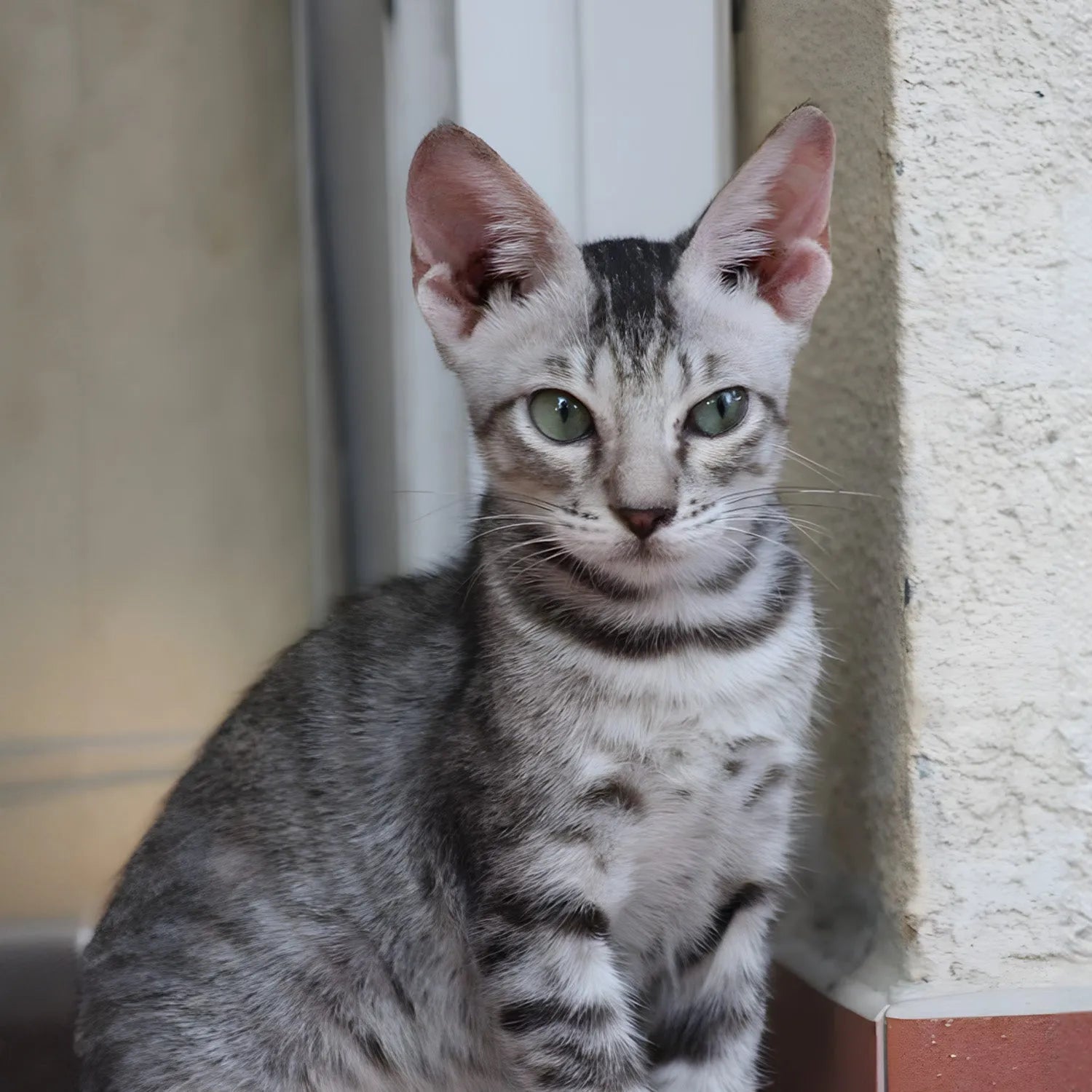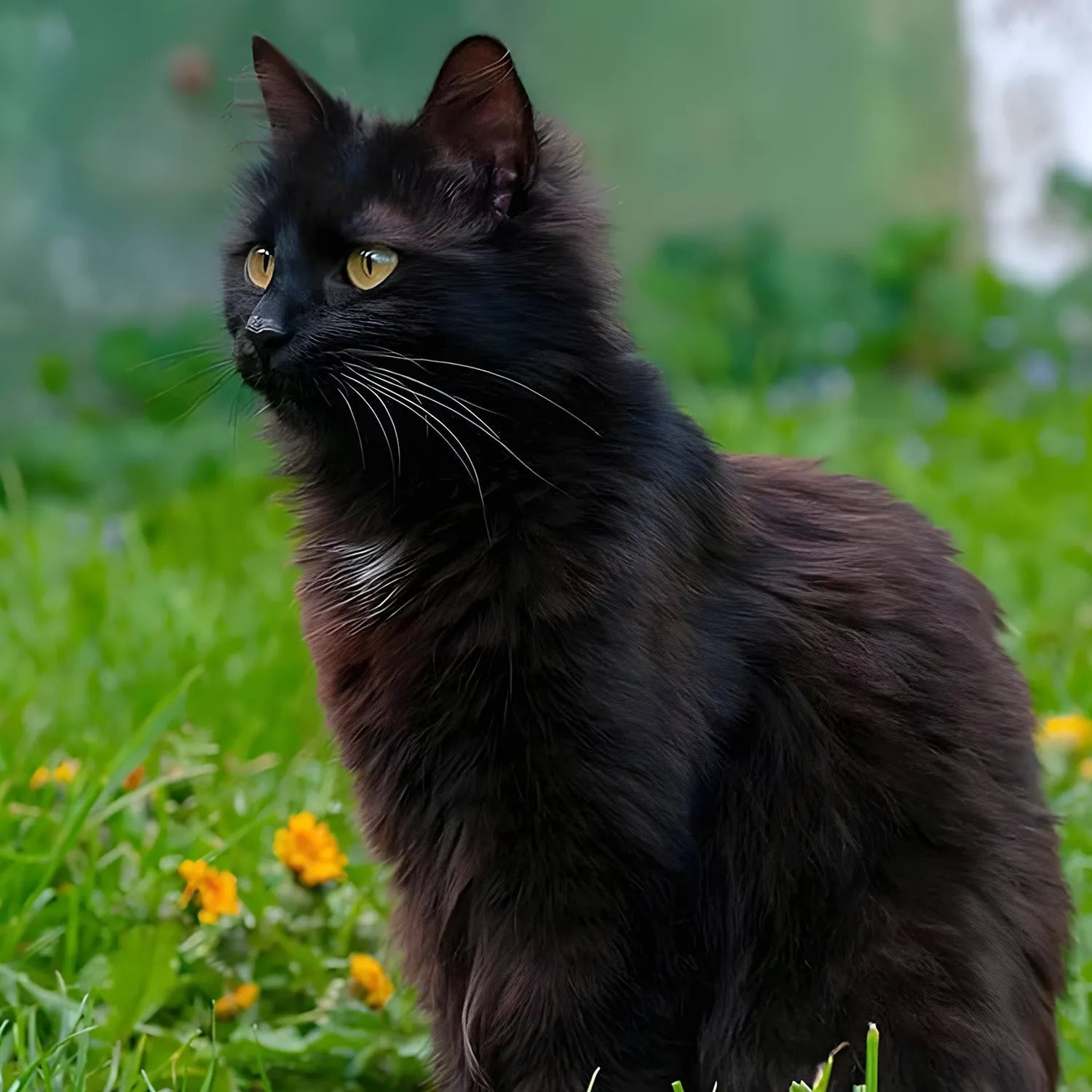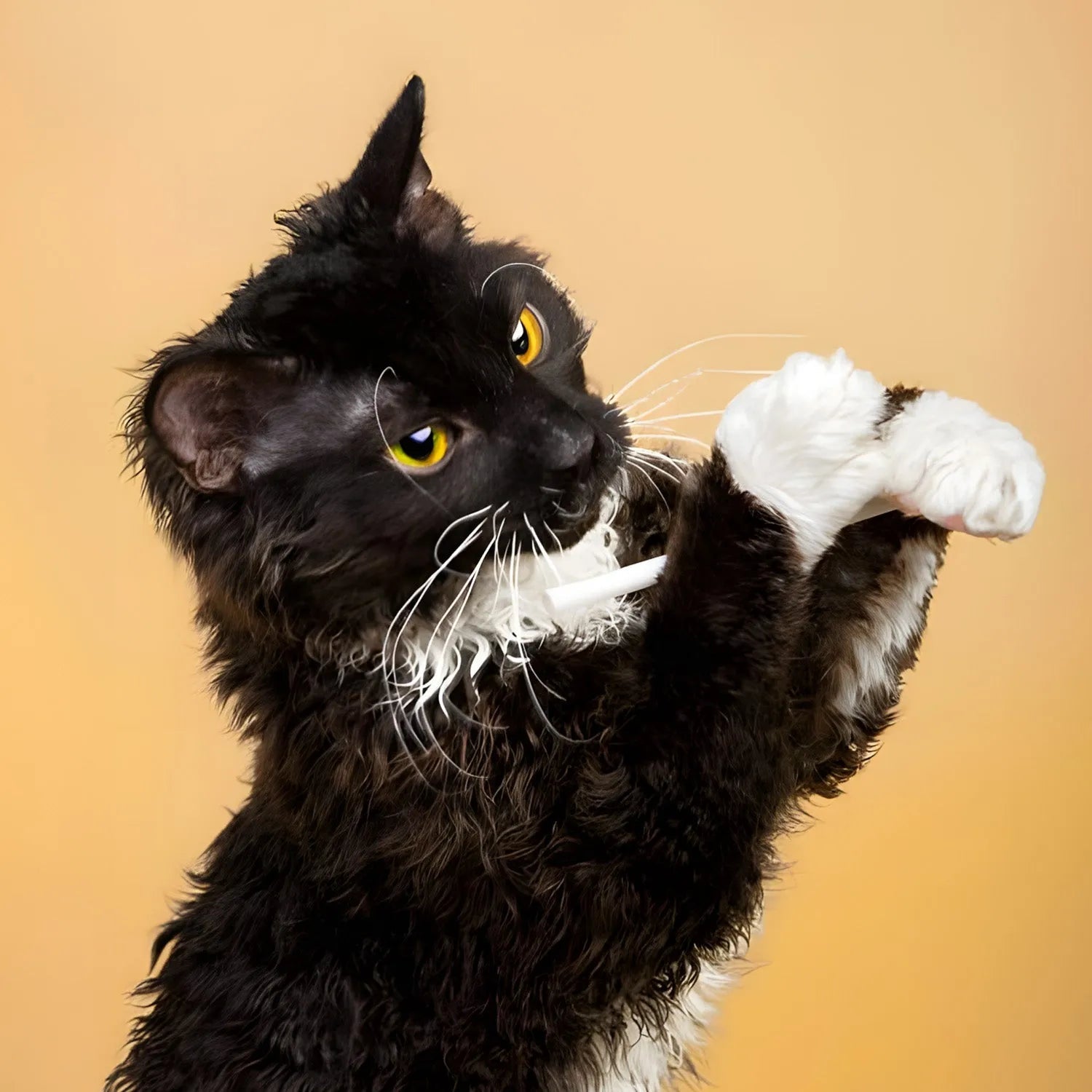Somali: The Fox-Like, Playful Feline with a Lush Coat
Introduction
The Somali cat is a captivating breed with a lush, ticked coat and a strikingly fox-like appearance. A long-haired relative of the Abyssinian, the Somali is known for its energetic and playful personality, combined with elegance and grace. These cats are highly intelligent, active, and love to explore, making them ideal companions for individuals or families who want a curious and lively pet. Their affectionate nature, combined with their love of play, makes them a favorite among cat lovers. In this blog, we’ll explore the Somali cat’s lifestyle, behavior, grooming needs, and how it interacts with humans and other pets.
Ratings (1-5)
-
Environmental Adaptability: 4
-
Food Consumption: 3
-
Need for Companionship: 4
-
Trainability: 4
-
Tolerance of Children: 5
-
Ease of Domestication: 5
History and Origins
The Somali cat is essentially the long-haired version of the Abyssinian, one of the oldest and most revered cat breeds. The long-haired gene appeared in Abyssinians as a recessive trait. Breeders initially considered the long-haired kittens as "faults," but over time, these kittens became appreciated for their beauty and unique appearance. By the 1960s, breeders in the U.S. and Canada began developing the Somali as its own distinct breed.
The breed was officially recognized by The International Cat Association (TICA) and the Cat Fanciers’ Association (CFA) in the late 1970s. Since then, the Somali has captured the hearts of cat enthusiasts around the world for its lively personality and luxurious coat.
Physical Characteristics and Colors
The Somali is a medium-sized cat with a graceful, athletic build. It has a lithe, muscular body with long legs and a long, bushy tail that gives it a distinctly fox-like appearance. Their almond-shaped eyes, which can be gold, green, or copper, are large and expressive, adding to their curious and playful look.
One of the most striking features of the Somali is its coat, which is thick, soft, and silky. The fur is ticked, meaning each hair has multiple bands of color, giving the coat a rich, vibrant appearance. Their coats are longer on the tail and ruff around the neck, enhancing their elegant and fox-like appearance.
Common Somali coat colors include:
-
Ruddy: A rich reddish-brown base coat with black ticking.
-
Sorrel (Cinnamon): A coppery-red base with chocolate ticking.
-
Blue: A soft bluish-gray base with deeper blue ticking.
-
Fawn: A light cream base with a warm, soft beige ticking.
Lifestyle and Behavior
Somali cats are known for their high energy and playful nature. They are active and curious, always eager to explore their surroundings and engage in interactive play. These cats are incredibly agile and athletic, often climbing, jumping, and darting around the house in playful spurts of energy. Somalis love to climb, so providing them with cat trees, shelves, and climbing structures will help keep them entertained.
Despite their active nature, Somalis are also affectionate and love spending time with their human companions. They are social cats that enjoy being part of daily activities, and they often follow their owners from room to room, curious about what’s going on. These cats love attention and will happily engage in play, whether it’s chasing a toy or playing a game of fetch.
Somalis are known for being intelligent and inquisitive. They enjoy problem-solving toys and puzzles that challenge their minds, and they can often figure out how to open cabinets or doors. These cats are not content to sit idly by—they need regular mental and physical stimulation to stay happy and healthy.
Trainability and Intelligence
Somali cats are highly intelligent and can be trained to follow commands, perform tricks, and even walk on a leash. They are quick learners and enjoy mental challenges, making them ideal candidates for training. Somalis respond well to positive reinforcement techniques, such as treats and praise, and they enjoy games that allow them to use their problem-solving skills.
Because of their intelligence, Somali cats need plenty of mental stimulation to prevent boredom. Puzzle toys, interactive feeders, and training sessions can help keep their minds sharp and prevent them from becoming bored or destructive. These cats are natural explorers, so providing them with a variety of toys and activities will help keep them entertained.
Training sessions with Somali cats should be fun and engaging, as they love the attention and the challenge of learning new things. Their playful nature and high intelligence make them eager to please, which contributes to their trainability.
Social Behavior and Human Interaction
Somali cats are incredibly social and enjoy spending time with their human family members. They are affectionate and form strong bonds with their owners, often following them around the house and seeking attention. Somalis are not typically lap cats, but they do love to be near their owners, often sitting next to them or lounging nearby.
These cats are also known for their friendly and outgoing personalities. They enjoy meeting new people and are generally welcoming to visitors. Somalis are not shy, and they will often approach new people with curiosity and playfulness. Because of their social nature, they thrive in homes where they can receive plenty of attention and interaction.
While Somali cats enjoy affection, they are also independent enough to entertain themselves when necessary. They appreciate having toys, climbing trees, and perches where they can explore and observe their surroundings.
Compatibility with Children and Other Pets
Somali cats are excellent companions for children due to their playful and tolerant nature. They enjoy interactive play and are generally patient with children’s antics, provided they are treated with respect. Their energetic and social personalities make them fun companions for kids who enjoy playing with toys or engaging in games like fetch.
In addition to being good with children, Somali cats also tend to get along well with other pets, including dogs. Their confident and friendly nature allows them to integrate well into multi-pet households, and they often enjoy the company of other animals. Proper introductions are important, but Somali cats are generally accepting of new furry family members and are known for their ability to get along with both cats and dogs.
Grooming and Care
The grooming needs of a Somali cat are moderate due to their semi-long, ticked coat. Weekly brushing is recommended to remove loose hairs and prevent tangles, particularly around the neck, belly, and tail, where the fur is thicker. During shedding seasons in the spring and fall, more frequent brushing may be needed to manage their coat.
Despite their long fur, Somalis are not prone to excessive matting when properly groomed. Their coat is soft and silky, and regular brushing will help keep it looking healthy and shiny.
In addition to regular brushing, Somali cats require routine dental care, ear cleaning, and nail trimming to maintain their overall health. Establishing a grooming routine early in life can help your Somali become accustomed to being brushed and handled, making grooming sessions a positive experience for both you and your cat.
Health and Lifespan
Somali cats are generally healthy, but like all breeds, they can be prone to certain genetic health conditions. Some common health concerns include gingivitis and periodontal disease, as well as hereditary conditions such as pyruvate kinase deficiency (PKD), which affects red blood cells. Responsible breeders screen for these conditions to reduce the risk of passing them on to future generations.
Regular veterinary check-ups, a balanced diet, and maintaining a healthy weight are essential to keeping your Somali cat in good health. With proper care, Somali cats typically live 12-16 years or more, making them long-term companions for any family.
Environmental Adaptability
Somali cats are adaptable and can thrive in a variety of living environments, whether in a small apartment or a larger home. They are particularly well-suited to indoor living, where they can enjoy a calm and predictable routine. However, because of their high energy levels and curious nature, they need plenty of mental and physical stimulation to stay happy.
Somali cats love climbing and will appreciate having access to cat trees, shelves, and perches where they can observe their surroundings from above. They also enjoy interactive play and will benefit from toys that challenge their minds and encourage physical activity.
Feeding Requirements
A balanced diet is crucial for maintaining the health and energy levels of Somali cats. High-quality cat food that is rich in protein is recommended to support their muscular build and overall well-being. Fresh water should always be available. Because Somali cats are active and energetic, it’s important to monitor their food intake to ensure they are receiving the proper nutrition to support their activity levels.
Consult your veterinarian for specific dietary recommendations based on your cat's age, weight, and health needs. Regular play sessions and activities that encourage physical movement can also help keep your Somali healthy and fit.
Conclusion
The Somali is a beautiful,
intelligent, and playful breed that brings energy and affection to any home. Their strong bonds with their human companions, combined with their curious and active personalities, make them wonderful pets for families, individuals, or anyone looking for a lively and loving cat. If you're searching for a feline friend that will keep you entertained with their playful antics and shower you with affection, the Somali may be the perfect fit.
For more information about other cat breeds and pet care tips, stay tuned to our blog!
References:
-
Davis, M. (2021). "The Fox-Like and Playful Somali Cat." *Journal of Feline Studies*, 35(3), 215-230.
-
Thompson, A. (2020). "Caring for Your Somali: A Comprehensive Guide." *Cat Lover’s Magazine*, July issue, pp. 25-33.
-
Harris, E. (2019). "Health and Wellness in Somali Cats." *Veterinary Journal*, 79(2), 123-137.


